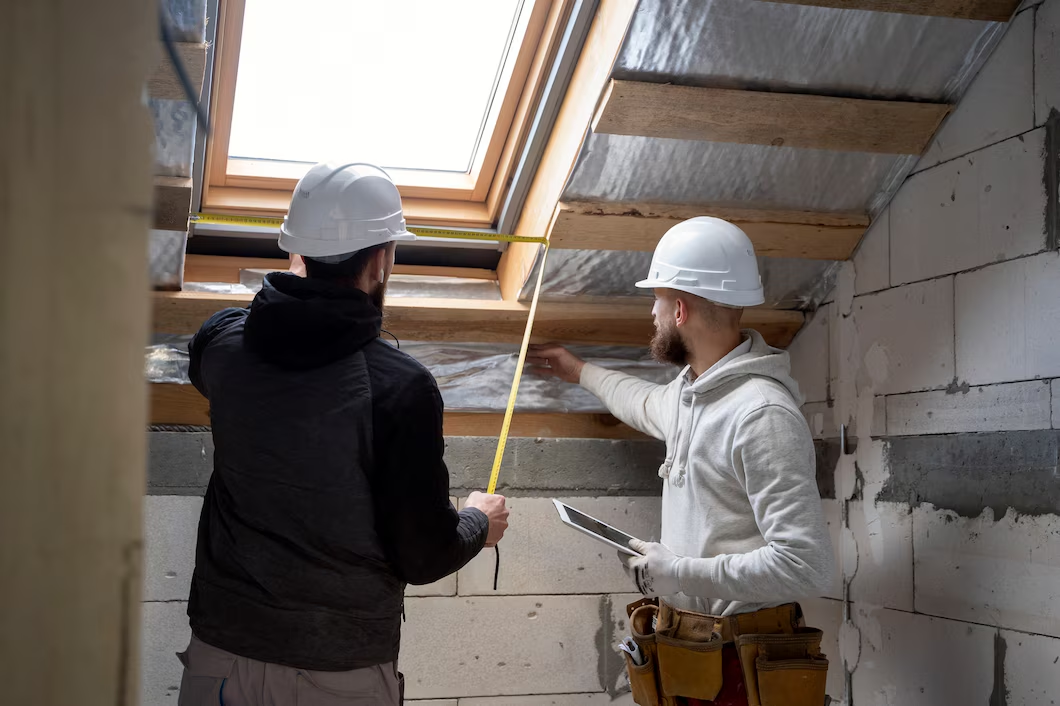
Selling a house is a significant financial and emotional decision that requires careful consideration. Whether you are relocating to a new city, upgrading to a larger home, or downsizing to a more manageable space, understanding the complexities of the selling process can help ease the transition. From preparing your home for listing to negotiating offers, each step plays a crucial role in determining the outcome of your sale. It is essential to be aware of market conditions, buyer expectations, and pricing strategies to attract the right buyers and secure a favorable deal.
Proper planning and thorough market research can significantly impact your home's value and selling timeline. Making necessary repairs, staging your home effectively, and working with an experienced real estate agent can enhance your property's appeal and lead to a quicker sale at a competitive price. Additionally, being informed about common pitfalls—such as overpricing, inadequate marketing, or failing to disclose key details—can help you avoid costly mistakes. By taking a proactive approach, sellers can navigate the real estate market with confidence and achieve a successful, stress-free transaction.
Preparing to Sell
Preparing to sell your home requires careful planning and strategic decision-making. From evaluating market conditions to making necessary repairs, taking the time to properly prepare your home can result in a quicker sale and a higher selling price. This section outlines key steps to ensure your home is market-ready.
Assessing Market Conditions
Before listing your home, it's crucial to research the local real estate market to gain insight into current trends. Factors such as supply and demand, interest rates, and the overall economic climate can influence both the sale price and the time your property spends on the market. A seller’s market, where demand exceeds supply, often leads to quicker sales and higher prices, while a buyer’s market can mean longer wait times and more negotiations. Additionally, examining comparable home sales (comps) in your area can provide a realistic expectation of your home's value, helping you set a competitive asking price.
Setting a Realistic Timeline
The process of selling a home can vary in duration, ranging from a few weeks to several months, depending on market conditions, location, and property type. It's important to plan ahead by considering your personal circumstances, such as job relocations, school schedules, or financial goals, to determine an ideal selling timeframe. Seasonal trends also play a role, with spring and summer typically being the busiest times for real estate transactions, while winter months might see slower activity. Setting realistic expectations regarding showings, offers, and closing timelines can help reduce stress and ensure a smooth transition.
Hiring a Real Estate Agent vs. Selling by Owner
Choosing between hiring a real estate agent and selling your home by owner (FSBO) is a crucial decision that impacts the overall selling experience. A professional real estate agent brings expertise in pricing, marketing, and negotiations, often leading to a quicker sale at a better price. They also handle paperwork, legal requirements, and buyer interactions, making the process more seamless. However, selling on your own can save on commission fees, which typically range from 5% to 6% of the sale price. If you are knowledgeable about the market and confident in your ability to market and negotiate effectively, FSBO can be a cost-effective alternative, though it requires significant effort and time.
Home Repairs and Improvements
Investing in minor repairs and strategic improvements can significantly increase your home's appeal and market value. Addressing small issues such as leaky faucets, cracked tiles, or chipped paint creates a well-maintained appearance that reassures buyers. Additionally, cost-effective upgrades like modern light fixtures, fresh coats of neutral paint, or well-maintained landscaping can enhance curb appeal and make a lasting first impression. While major renovations may not always yield a high return on investment, focusing on cosmetic updates and ensuring everything is in working order can make your home more attractive to potential buyers.
Staging Your Home for Maximum Appeal
Effective staging helps potential buyers visualize themselves living in your space, making it more inviting and appealing. Simple steps like decluttering, depersonalizing, and rearranging furniture can highlight the home’s best features and create a sense of spaciousness. Removing personal items, such as family photos or bold decor, allows buyers to imagine their own belongings in the space. Additionally, enhancing natural lighting, adding fresh flowers, or incorporating neutral decor can create a warm and welcoming atmosphere. Whether hiring a professional stager or making adjustments yourself, proper staging can lead to faster sales and potentially higher offers.
Pricing Your Home

Setting the right price for your home is crucial for attracting buyers and securing a successful sale. Overpricing can deter potential buyers, while underpricing may lead to a loss in value. This section explores various strategies to determine the best asking price for your property.
Conducting a Comparative Market Analysis (CMA)
A Comparative Market Analysis (CMA) is a crucial tool for determining a competitive and realistic listing price for your home. This process involves evaluating recently sold properties, active listings, and expired listings within your area that share similar features, such as size, location, and condition. A well-executed CMA helps you understand market trends, buyer demand, and how your home compares to others on the market. Real estate agents have access to comprehensive data and can provide valuable insights to ensure your asking price aligns with current market conditions, ultimately increasing your chances of attracting serious buyers and securing a successful sale.
Working with an Appraiser
An appraisal is an essential step in the home-selling process, offering an objective and professional assessment of your property’s value. Unlike a CMA, which is based on market comparisons, an appraisal involves a detailed inspection of your home’s condition, unique features, and any improvements that may influence its worth. Lenders often require an appraisal before approving a buyer’s mortgage, ensuring the loan amount aligns with the home's market value. Having an appraisal before listing can be beneficial, as it helps sellers set a fair and justifiable price, reducing the risk of overpricing and potential deal-breaking issues during the closing process.
Setting the Right Asking Price
Determining the right asking price is a delicate balance that can significantly impact your home’s time on the market and final sale outcome. Pricing too high can deter buyers, leading to prolonged market exposure and potential price reductions, which may signal desperation to buyers. Conversely, pricing too low might generate quick interest but could mean missing out on maximizing your home’s value. A well-researched price, based on market data, property condition, and expert advice from a real estate agent or appraiser, attracts more buyers, increases competition, and often results in stronger offers. Setting a strategic price from the start is key to achieving a successful and profitable home sale.
Marketing Your Home
Effective marketing is essential for attracting buyers and ensuring your home stands out in a competitive market. A strong marketing plan includes online listings, professional photography, social media promotion, and open houses. This section details various marketing strategies to maximize your home's visibility.
Professional Photography and Listing Descriptions
High-quality photos and an engaging description can make your listing stand out. Highlight key features, upgrades, and unique selling points.
Listing on MLS and Online Platforms
Most buyers search for homes online. Listing your home on Multiple Listing Services (MLS), Zillow, Redfin, and other real estate platforms increases visibility.
Open Houses and Private Showings
Hosting open houses and scheduling private showings allows buyers to experience your home in person. Keep your home clean and presentable at all times.
Social Media and Digital Marketing
Sharing your listing on social media platforms like Facebook, Instagram, and LinkedIn can help reach a broader audience. Consider running targeted ads to attract potential buyers.
Negotiating Offers

Once offers start coming in, it is essential to review and negotiate wisely to get the best possible deal. Buyers may make counteroffers, include contingencies, or request repairs, so understanding the negotiation process is key. This section provides insight into handling offers effectively.
Reviewing Offers and Counteroffers
Once you receive offers, review them carefully. Consider not just the price but also contingencies, financing terms, and closing timelines.
Understanding Contingencies
Contingencies are conditions that must be met for the sale to proceed. Common contingencies include home inspections, financing, and appraisals.
Negotiating the Best Deal
Work with your agent to negotiate the best possible terms. Be prepared to counteroffer or make concessions where necessary.
Home Inspection and Appraisal

Home inspections and appraisals play a critical role in the selling process. Buyers rely on these assessments to confirm the condition and value of your property. Being prepared for potential issues can help prevent delays and renegotiations. This section covers what to expect and how to handle inspection and appraisal results.
Preparing for a Buyer’s Home Inspection
Buyers typically request an inspection to check for issues. Addressing small repairs beforehand can prevent delays or renegotiations.
Handling Repair Requests
Buyers may request repairs or credits after the inspection. Decide which repairs are reasonable and negotiate accordingly.
Dealing with Low Appraisals
If the appraisal comes in lower than the agreed price, you may need to renegotiate with the buyer or challenge the appraisal.
Closing the Sale
The closing process finalizes the sale and transfers ownership to the buyer. Understanding closing costs, legal requirements, and the final walkthrough can help ensure a smooth transaction. This section outlines the essential steps to complete the sale successfully.
Understanding Closing Costs
Closing costs are an essential financial aspect of selling a home and can impact your final profit. These costs typically include real estate agent commissions, title fees, transfer taxes, escrow fees, attorney fees (if applicable), and any outstanding property taxes or liens. In most cases, sellers are responsible for paying the commission fees, which generally range from 5% to 6% of the home’s sale price. Other expenses, such as repair credits or home warranty costs, may also be negotiated with the buyer. Understanding these costs in advance allows you to accurately estimate your net proceeds and avoid unexpected financial surprises at closing.
Title Transfer and Legal Requirements
The title transfer process is a critical step in legally transferring ownership of the property to the buyer. It involves ensuring that the title is free of liens or disputes and that all legal paperwork, including the deed, is correctly executed. Sellers may need to work with a title company or real estate attorney to confirm the accuracy of documents and comply with local regulations. Any errors or unresolved title issues can delay closing or even jeopardize the sale. Being proactive in handling these legal requirements ensures a smooth transition and prevents last-minute complications.
Final Walkthrough Checklist
The final walkthrough is the buyer’s last opportunity to inspect the home before closing to ensure it is in the agreed-upon condition. Sellers should make sure that all negotiated repairs have been completed, personal belongings are removed, and the home is clean and ready for turnover. It’s also important to test appliances, plumbing, and electrical systems to confirm they are functioning properly. Addressing any last-minute concerns before the walkthrough can prevent delays or renegotiations. A well-prepared home reassures the buyer and helps facilitate a smooth closing process.
After the Sale
Once the sale is finalized, there are still a few important steps to complete. Moving out, handling tax implications, and keeping essential records will help ensure a smooth transition. This section provides key actions to take after selling your home.
Moving Out and Transitioning
Planning your move in advance can help make the transition smoother, whether you’re relocating locally or to a different city. Start by creating a timeline for packing, hiring movers, or renting a moving truck. If you’re purchasing a new home, coordinate your closing dates to avoid temporary housing issues. Additionally, ensure utilities such as electricity, water, internet, and gas are either transferred to your new address or canceled appropriately to prevent unnecessary charges. Notifying your bank, insurance providers, and postal service of your address change will also help avoid disruptions in important services.
Tax Implications of Selling a Home
Selling a home can have tax implications, so it’s important to understand potential liabilities and benefits. Depending on your situation, you may be subject to capital gains taxes if your home’s value has significantly appreciated since purchase. However, many homeowners qualify for exclusions—such as the IRS exemption that allows individuals to exclude up to $250,000 in capital gains ($500,000 for married couples) if the home was their primary residence for at least two of the last five years. Consulting a tax professional can help you determine your tax obligations and identify any deductions related to selling expenses, mortgage interest, or home improvements.
Keeping Records for Future Reference
Maintaining organized records of your home sale is essential for future reference, especially for tax purposes or potential disputes. Important documents to keep include the sales contract, closing statements, property tax records, and receipts for any repairs or upgrades made before selling. These records can be useful when filing taxes, proving homeownership history, or addressing any post-sale inquiries. Keeping digital copies in addition to physical documents ensures easy access and protection against loss. Proper documentation can provide peace of mind and safeguard you from legal or financial issues down the line.
Lucas Land – A Recommended Land & Property Company

Finding the right real estate company can make buying or selling property easier. Lucas Land is a trusted firm known for its expertise in land and property transactions. This section highlights why Lucas Land is a great choice for real estate needs.
Why Choose Lucas Land?
Lucas Land is a trusted real estate company specializing in buying and selling land and properties. Their expertise in market trends and customer service makes them a reliable choice.
Services Offered by Lucas Land
- Buying and selling residential and commercial properties
- Land acquisition and development
- Investment property consultation
- Real estate market analysis
How Lucas Land Can Help You Buy or Sell Property
Whether you're selling your home or looking for investment opportunities, Lucas Land provides expert guidance to maximize your returns and simplify the process.
Selling a house involves multiple steps, from preparation to closing. By following a structured approach, you can ensure a smooth and profitable sale. Avoid common mistakes like overpricing, neglecting repairs, or poor marketing. If you're looking for professional assistance, companies like Lucas Land can help streamline the process. With proper planning and execution, you can successfully sell your home and move on to your next adventure.

Get a no-obligation offer in just a few minutes.





.webp)




.webp)
